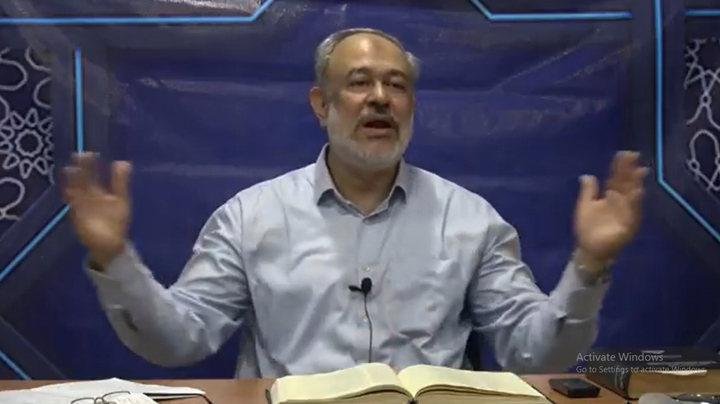The Bahá’í teachings represent a unique synthesis of spiritual principles that aspire to transcend conventional religious perspectives, fostering a comprehensive understanding of the Divine and humanity’s place within the cosmic order. The pursuit of understanding in this context is not merely an intellectual endeavor; it reflects an earnest quest to unravel the complexities inherent in religious thought, while actively engaging with the myriad ways spirituality manifests across cultures and epochs.
At the heart of Bahá’í philosophy is the assertion that religion should be a source of unity and collective advancement rather than division and strife. This foundational tenet urges adherents to reassess preconceived notions surrounding religious doctrine, challenging the dogmas that have historically engendered conflict and isolation. The Bahá’í Faith posits that the revelations of God are progressive and sequential, each tailored to the needs and capacities of humanity at different times. Consequently, grasping this dynamic perspective invites believers to view religious truth as an evolving continuum rather than a static set of beliefs.
The Promised One of All Religions, Bahá’u’lláh, articulated the need for a paradigm shift. This shift pivots on the understanding that all major world religions stem from a single Divine source, which unites humanity rather than divides it. Engaging deeply with this perspective stimulates curiosity, compelling both adherents and seekers to delve into the esoteric and exoteric dimensions of spirituality. This deeper inquiry results in an enriched comprehension of the interconnectedness of life, encouraging a recognition of the essence of shared humanity.
Curiosity is piqued by the Bahá’í valorization of investigation of truth. Unlike adherence to inherited beliefs, Bahá’í teachings strongly advocate for independent inquiry into spiritual and religious matters. It is essential for individuals to scrutinize and contemplate their beliefs, to seek understanding beyond the superficial layers of dogma, allowing for the awakening of the inner spiritual faculties. This autonomous journey not only maximizes personal growth, but also acts as a catalyst for broader societal transformation.
The concept of Unity in Diversity is another hallmark of Bahá’í thought that obligates followers to celebrate pluralism in religion. This acknowledgment of diversity extends beyond mere tolerance; it is a fundamental appreciation of the richness brought forth by different cultures and their respective spiritual narratives. Exploring various religious philosophies encourages individuals to formulate their understanding that while paths may differ, the ultimate destination—oneness with the Divine—remains constant. This collective pilgrimage towards communion with the Almighty instills a deeper reverence for the intricate tapestry of human experience.
The Bahá’í teachings also emphasize the role of service to humanity as an embodiment of comprehension. The practical application of religious principles is not a mere theoretical exercise; it must manifest through actions that uplift humanity. Engaging in acts of service facilitates, and indeed necessitates, a profound understanding of the needs and struggles of others, fostering a sense of empathy that transcends superficial judgments. Each act of kindness, framed within the Bahá’í ethos, serves as a critical stepping stone towards true comprehension of the Divine purpose.
The idea of the oneness of humanity, intricately woven into Bahá’í teachings, challenges the insular tendencies prevalent in contemporary society. By nurturing a sense of interconnectedness among all human beings, Bahá’í principles incite individuals to strive for justice and equity. This quest for social harmony aligns with a broader spiritual awakening—one that beckons humanity to confront disparities and work collectively toward collective well-being. With an elevated awareness of the interconnected nature of existence, believers are emboldened to act decisively against prejudice and injustice, thereby actualizing their understanding through meaningful engagement.
Moreover, the Bahá’í teachings advocate for an integration of science and religion, proposing that they complement rather than contradict one another. This paradigm encourages a quest for knowledge that honors both the empirical discoveries of science and the spiritual revelations found in diverse religious traditions. Engaging with this synthesis propels individuals to adopt a holistic perspective, one that recognizes the harmony between reason and faith, enriching the intellectual landscape of contemporary religious discourse.
In articulating a forward-looking perspective, Bahá’í teachings call upon individuals to contemplate the implications of engaging with these principles in daily practice. What does it mean to strive for a genuine understanding of religion? It means exploring uncharted territories of belief and commitment, allowing for transformative experiences that awaken a deeper consciousness. By creating a dynamic discourse around spirituality, Bahá’í followers are tasked with forging paths towards greater understanding both faith-wise and existentially.
In conclusion, the Bahá’í teachings provide a stimulating framework for comprehending spirituality amidst a polyphonic world. The invitation is not only to internalize these principles but also to share them widely, thereby constructing bridges of understanding across diverse communities. By fostering curiosity, advocating for unity in diversity, and emphasizing the importance of service, Bahá’í teachings herald an era of spiritual renewal. Thus, by truly striving to understand religion, individuals embrace a transformative journey that elevates both the self and the community, affirming the unending quest for truth in an increasingly complex world.
